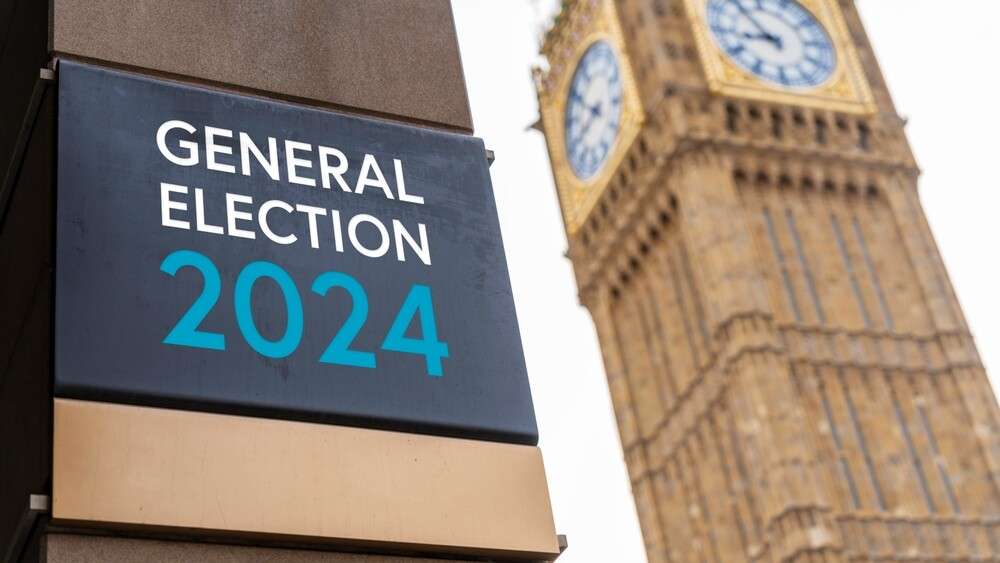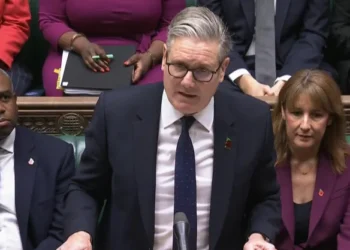A recent YouGov poll has highlighted a significant split in public opinion over key pledges from the Labour and Conservative parties as the general election approaches.
The survey, which engaged over 2,000 adults, also shows widespread opposition to the Conservative proposal to reintroduce national service.
The Conservative Party’s flagship proposal of a year of military service or a day of volunteering per month for 18-year-olds has failed to gain broad support.
The poll indicates that 52% of respondents are against the idea, with only 39% in favor. This marks an increased opposition compared to initial reactions when the policy was announced over a week ago.
Additionally, the Conservatives’ plan to shut down university degrees deemed to have “poor” outcomes did not fare much better, receiving support from 49% of voters, while 29% opposed it.
In contrast, the Conservative pledge to raise the income threshold for pensioners before they have to pay income tax, in line with the annual increase under the ‘triple lock,’ has been well-received.
A substantial 73% of respondents support this policy, highlighting a stronger area of agreement with the electorate.
Labour’s Policies on Education and Energy
Labour’s policy to impose VAT on private school fees has garnered significant backing, with 61% of respondents supporting the move. Similarly, the proposal to create a publicly owned renewable energy provider has received overwhelming support, with 74% of respondents in favor.
However, Labour leader Keir Starmer’s suggestion to lower the voting age to 16 is notably unpopular, supported by only 32% of respondents, while 59% are opposed.
Moreover, Labour and the Conservatives have pledged not to raise income tax, national insurance, or VAT.
However, this promise does not seem to have captured the public’s enthusiasm. The poll reveals that 46% of respondents support the tax pledge, 30% oppose it, and the remainder are unsure.
Liberal Democrats’ Policies Resonate
The Liberal Democrats’ proposals have emerged as some of the most popular among those surveyed. Their policy to award blue flag status to rivers and reduce sewage discharge has achieved an 87% approval rating.
Additionally, the idea of providing free school meals to all pupils in England is supported by 74% of respondents, and their proposal to reduce VAT on children’s toothbrushes and toothpaste has received 83% backing.
The Conservatives’ strategy of appealing to Reform UK supporters with bold policies such as national service does not appear to be paying off.
Despite these efforts, the Reform Party’s support has risen in national polls, especially following Nigel Farage’s return as party leader and candidate in Clacton.
Nationally, the Conservatives are trailing Labour by about 20 points. The polling gap has widened since the campaign began two weeks ago, exacerbated by Prime Minister Rishi Sunak’s blunder of cutting short his appearance at the 80th anniversary of D-Day in France.
Election Manifestos on the Horizon

Both major parties are preparing to unveil their manifestos this week. Sources suggest Labour’s manifesto will not contain any major surprises, as Keir Starmer aims to maintain his lead by avoiding any potential pitfalls.
Starmer has emphasized that there will be no new tax rises beyond what has already been announced. “All of our plans are fully costed, fully funded, and none of them involve tax rises over and above those that we’ve already set out,” Starmer stated while campaigning.
Conversely, the Conservatives are considering significant tax changes and may propose stamp duty cuts for first-time buyers in a bid to rejuvenate their campaign. Despite a rocky start, the party hopes to reset its course with these potential measures.
As the election draws nearer, both parties face the challenge of swaying undecided voters while solidifying their existing support bases. The forthcoming manifestos will be crucial in shaping the final weeks of the campaign.
READ ALSO: Naa Koryoo’s Arrest: Police Refutes “Order from Above” Allegations























